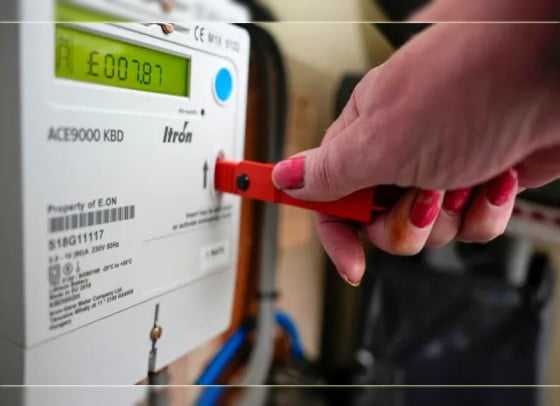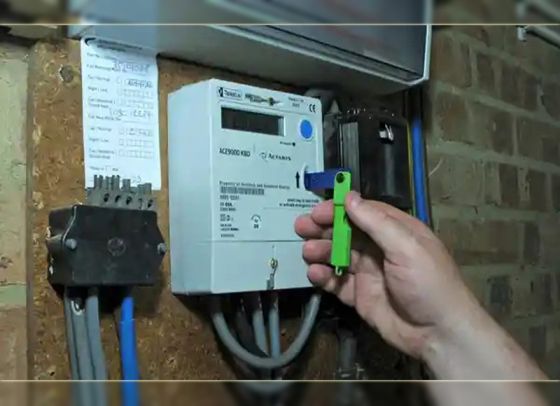Explore the impact of hidden energy charges, known as standing charges, on prepayment meter users and their connection to fuel poverty concerns. Learn about the rising costs, advocacy for reform, and expert perspectives in this informative article.

The UK Government is under pressure to eliminate a concealed energy charge for prepayment meter customers, as concerns mount that it is driving people into fuel poverty. The contentious “standing charges” are intended to maintain the energy grid but tack on approximately £300 annually to gas and electricity bills, irrespective of usage. Prepayment meter users face the brunt of this charge, which is deducted before energy consumption, potentially leading to debt accumulation and even disconnection.
READ THIS:
- Decoding Ofgem’s £151 Energy Bill Savings: Exploring Price Cap Adjustments and Future Implications
- Critical Shortcomings in Energy Bill Support Scheme: 80% of Eligible Homes Miss Aid, £300M Remains Untapped
Industry Experts and MPs Join the Debate:
Scott Byrom, CEO of The Energy Shop, argues that prepayment customers’ standing charges should be reduced, while Octopus Energy’s Greg Jackson emphasizes that these charges disproportionately impact lower-income households. Labour MP Beth Winter suggests absorbing some charges within the existing energy price cap, deeming the cost regressive. Liberal Democrats leader Sir Ed Davey calls for urgent Ofgem intervention to rectify the unfairness of standing charges.

READ THIS: Unlock Water Bill Savings: Fresh Program Eases Financial Strain for Working Households in Wales
Rising Standing Charges Amid Energy Crisis:
Standing charges, an everyday fee, have surged by 60% over the last two years due to the financial strain from collapsing electricity suppliers. These charges amount to up to 80p per day for electricity and up to 60p per day for gas. While Energy Minister Andrew Bowie declined to comment on the increase, there is growing concern about the burden it places on vulnerable consumers.
Advocates Call for Reform:
Charities and campaigners are urging the Government to collaborate with the energy regulator, Ofgem, to eliminate the hidden fee. The escalating energy crisis has intensified these calls, as it disproportionately affects low-income households.
Fuel Poverty Action’s Campaign:
Fuel Poverty Action, a group advocating an end to both prepayment meters and standing charges, characterizes these charges as akin to paying for the right to buy energy daily. The group highlights cases where households are compelled to forgo gas boilers to cope with costs, leading to potentially life-threatening consequences like hypothermia.

Impact on Low-Income Households:
Low-income households on prepayment meters bear the brunt of the standing charges, as these charges constitute a higher percentage of their bills. National Energy Action’s CEO, Adam Scorer, notes that such charges lead to unmanageable debt for households striving to limit energy usage or disconnect entirely.
Disparities in Standing Charges:
The Liberal Democrats highlight regional disparities, with households in certain areas paying significantly more than others. For instance, households in north Wales and Merseyside pay £109 more annually on average than those in the East Midlands.
Changing Landscape:
Although the cost per unit of energy will decrease with a new price cap from October 1st, the standing charge for an average electricity-consuming household will rise. As public concern grows, stakeholders and regulators are being urged to address this issue promptly.
After reading the post ‘Unveiling Hidden Energy Charges: Fuel Poverty Fears and Calls for Reform‘, please read below post.
READ MORE: Shortfall in Energy Support Scheme: £3 Million Assistance Missed by Over 700,000 Households
FAQs
Question: What are standing charges in the context of energy bills?
Answer: Standing charges are fees added to gas and electricity bills regardless of energy usage, aimed at maintaining the energy network.
Question: How have standing charges evolved over the past two years?
Answer: Standing charges have increased by 60% in the last two years, attributed to the financial impact of electricity supplier failures.
Question: Who is advocating for the elimination of standing charges, and why?
Answer: Charities, campaigners, and industry experts are urging the government to collaborate with the energy regulator to scrap standing charges due to concerns about pushing consumers into fuel poverty.
Question: How do standing charges disproportionately affect low-income households?
Answer: Low-income households with prepayment meters are hit the hardest by standing charges, as these charges constitute a larger portion of their bills, potentially leading to unmanageable debt or energy rationing.